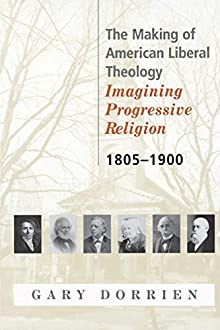
Gary Dorrien, an Episcopal Priest, a professor at Union Theological Seminary, and the foremost expert on American liberal theology, explains:
Before the modern period, all Christian theologies were constructed within a house of authority. All premodern Christian theologies made claims to authority-based orthodoxy. Even the mystical and mythopoetic theologies produced by premodern Christianity took for granted the view of scripture as an infallible revelation and the view of theology as an explication of propositional revelation. (The Making of American Liberal Theology: Imagining Progressive Religion, xv).
Dorrien goes on to say that later “Reformed and Lutheran orthodoxy heightened the Reformation principle that Scripture is the sole and infallibly sufficient rule of faith, teaching that scripture is also strictly inerrant in all that it asserts” (xv). He further argues that Roman Catholicism, Eastern Christianity, and the Anglican tradition were all based on external authority in their own ways as well.
But liberal theology, which Dorrien believes to be “the most creative and influential tradition of theological reflection since the Reformation,” charted a different course. Liberalism is both a tradition, coming out of the late-18th century Protestant attempt to reconfigure traditional Christian teaching in the light of modern knowledge and values, and a diverse, but recognizable approach to theology.
Fundamentally it is the idea of a genuine Christianity not based on external authority. Liberal theology seeks to reinterpret the symbols of Christianity in a way that creates a progressive religious alternative to atheistic rationalism and to theologies based on external authority.
Specifically, liberal theology is defined by its openness to the verdicts of modern intellectual inquiry, especially the natural and social sciences; its commitment to the authority of individual reason and experience; its conception of Christianity as an ethical way of life; its favoring of moral concepts of atonement; and its commitment to make Christianity credible and socially relevant to modern people. (xxiii)
Though the theological conclusions may be miles apart at times, it’s important for evangelicals to be familiar with liberal theology. We want to understand it accurately, deal with it fairly, and recognize that some Christians embrace the theology without embracing the term.



